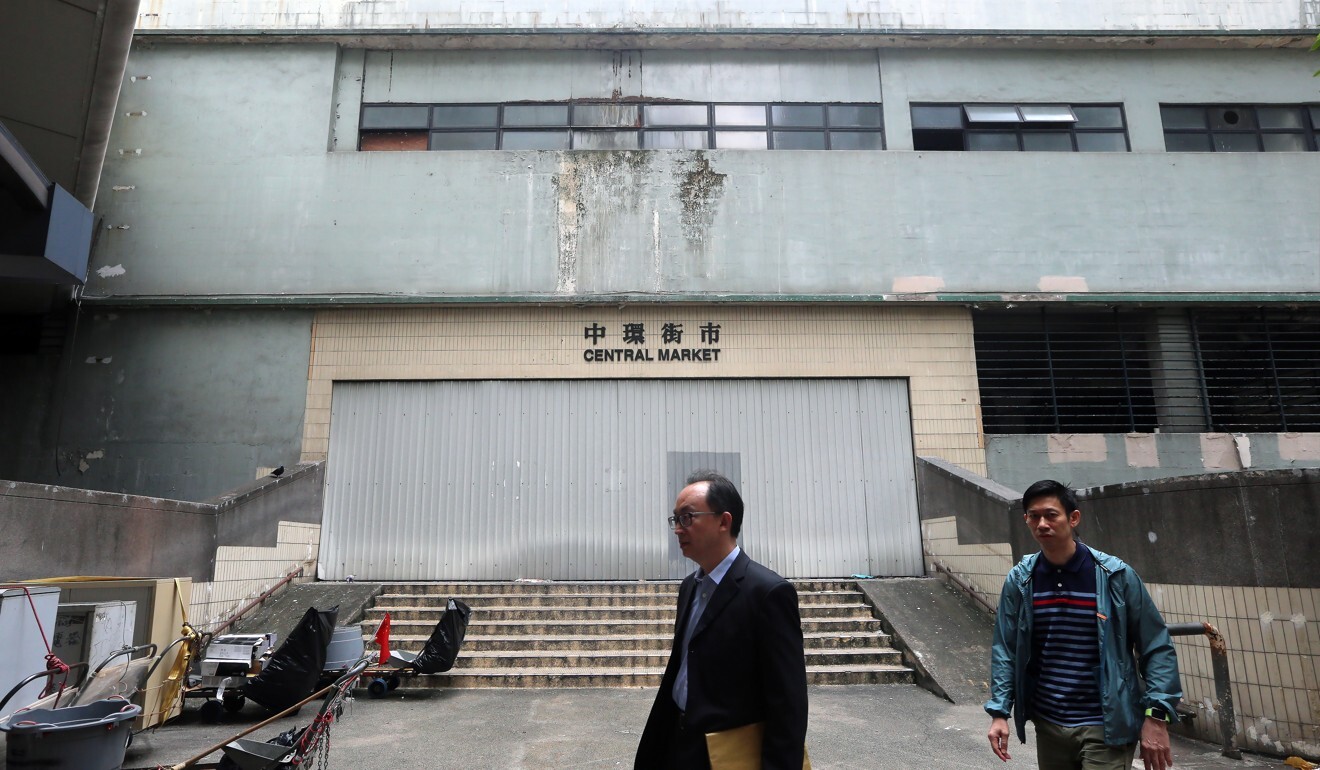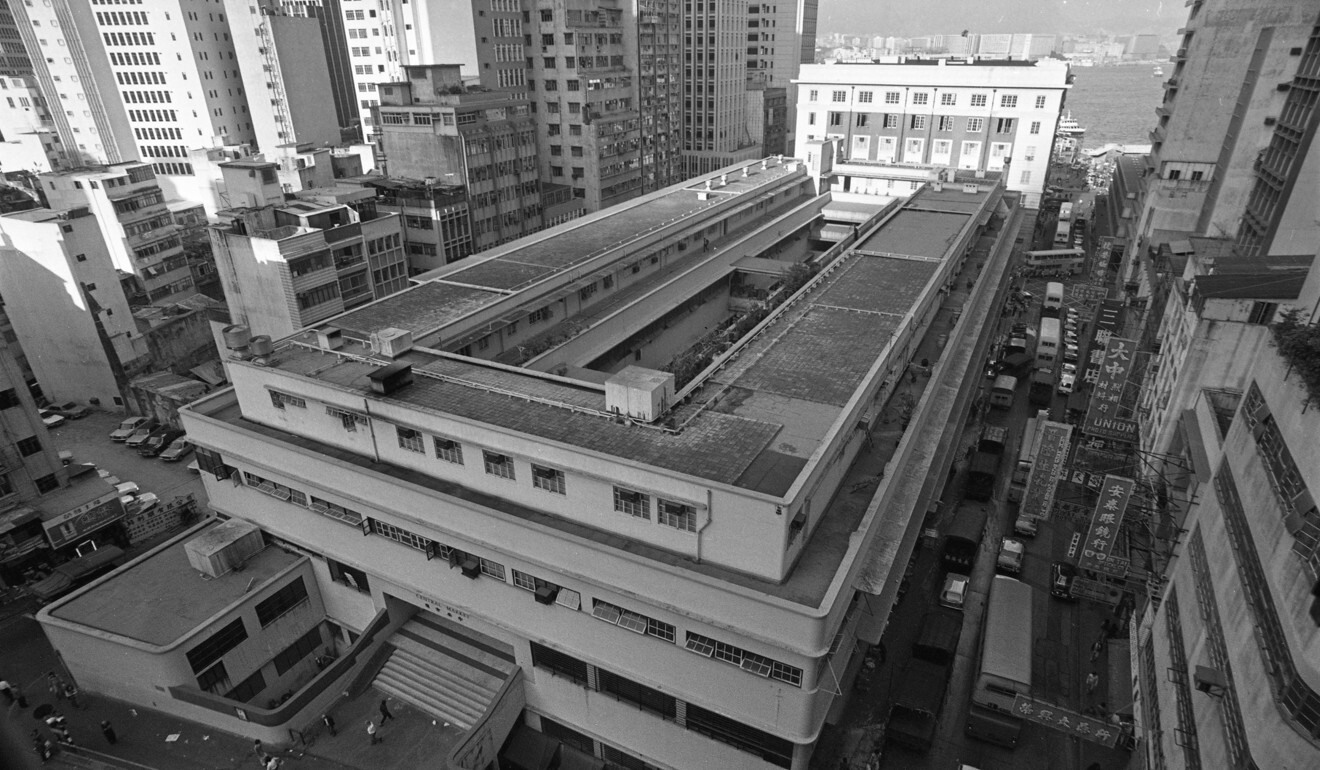
Historic Hong Kong landmark Central Market to be reimagined as ‘playground for all’
- Building to be redeveloped by Noble Vantage Limited after parent company Chinachem Group won tender process
- Plan is to transform three-storey site into ‘a vibrant, bustling place’ where locals meet, eat, and socialise

Hong Kong’s historic Central Market will be turned into a retail space for local brands by a property developer, which has won the rights to revitalise the 81-year-old landmark.
The Urban Renewal Authority announced on Monday that Noble Vantage Limited, a subsidiary of the Chinachem Group, had been chosen as the main operator for the revitalisation project of the building in the heart of the city’s financial district.
Central Market first opened for business in 1842 as a bazaar catering to locals. The current three-storey Bauhaus-style building was built in 1939, and is a grade three historic building nestled among towering skyscrapers between Des Voeux Road and Queen’s Road Central.
After more than a decade of public consultation mired in bureaucracy, the landmark will be handled by Noble Vantage for a period of 10 years, and the company has been tasked with curating local retail and dining brands to live up to the site’s heritage conservation values.

Chinachem Group said in a statement it would work with the authority to make the site “approachable, energetic and gregarious”, and return maximum benefit to the community.
The group’s proposed theme is “Playground for All”, with the aim to make the development a “vibrant, bustling place where people of all walks of life can meet, mingle and socialise”.
Donald Choi Wun-hing, the developer’s executive director and CEO, told the Post they wanted to turn the landmark into a community hub showcasing local brands across retail, food and drink, and even urban farming.
“We are looking for diversity in our customers and we really hope that will become a gathering point for not only the working group in Central, but also the elderly as well as children,” Choi said.
Choi said he hoped to promote Hong Kong brands – both traditional and up-and-coming ones – along with cultural events and activities to the premise, stressing it would not focus on attracting “big spending international brands” to the site.
He said the developer would offer a “very reasonable” base rent to prospective tenants, seen as business partners on the revitalisation project.
The performance and operational effectiveness of the main operator and its tenants would also be closely monitored and supervised by a committee between the authority and Noble Vantage.
Despite the retail and tourism slump since the onset of the coronavirus pandemic last year, Choi was optimistic that the location of the Central Market, which links the International Finance Centre (IFC) to the iconic Mid-Levels escalator, would be a landmark for locals and tourists alike in the future.
In a statement, the authority said it would contribute to the cost of management and maintenance of the public facilities of the building, including its toilets, open spaces and the 24-hour passageway that connects to the escalator.

Central Market was vacated in 2003 and was at the centre of controversy over whether it could be torn down for high-rise development. The Central Market Revitalisation Project was unveiled six years later in the 2009 policy address.
An initial costly plan to turn the building’s rooftop into a “floating oasis” with more than 10,000 sq ft of public open space was scrapped in 2015. Two years later, the authority was given approval to turn the site into a 130,000 sq ft modern landmark with retail and public spaces.
In 2017, the government granted the land to the URA through a private agreement for a duration of 21 years, which enables the authority and its chosen operator to take up the responsibility of preserving and revitalising the building.
The authority received three bids when it opened a tender for an operator last September.